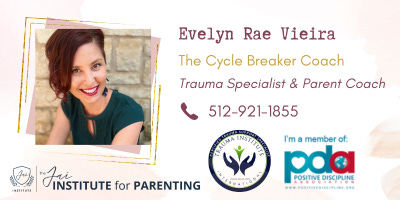Five Signs Your Parent is Narcissistic
And How to Deal with it Without Losing Your Mind, Soul or Sanity!
Narcissistic Parents are Crappy Parents
A narcissistic parent is someone who is excessively self-centered and obsessed with themselves, even to the detriment of their children. They constantly seek attention and validation from others (including their children) and have little regard for anyone else’s feelings or needs.
Note: If you suspect your parent or partner may be narcissistic, it is essential to seek professional help so that you can learn how to best deal with this challenging personality type.
Here are five signs of narcissistic parenting:
1. They are SELF ABSORBED:
Narcissistic parents are extreme in their need for attention and admiration. They need to be the center of attention, a belief that they are superior to others, or a constant desire for affirmation and approval. No matter what’s going on, they make it about themselves.

2. They lack EMPATHY:
They are often indifferent to the feelings of their children or anyone else for that matter. Narcissists have an inflated sense of self-importance, a need for excessive admiration, and a lack of empathy for others. They will disregard their children’s feelings, opinions and thoughts and will not be able to meet their children’s emotional needs.
Narcissistic parents use shame as tool to control their children’s feelings and emotions. They also use Emotional Blackmail to manipulate others which is a combination of fear, obligation and guilt.
A narcissistic parent can be dismissive and critical, which can make their children feel invisible. They may also be quick to anger and incapable of seeing things from another person’s perspective. As a result, their children often feel emotionally drained and unsupported.
3. They PARENTIFY:
Narcissistic parents rely on their children for emotional stability and support which is a form of emotional abuse and stunts their child’s emotional development.
Children who are parentified grow up believing they are responsible for other people’s problems and learn to deny their needs in order to help others. In adulthood, these characteristics become codependent and attract manipulative people, thus continuing the cycle of family dysfunction for the next generation. Narc parents see their children as extensions of themselves, not completely separate beings.

4. They are EMOTIONALLY IMMATURE:
They often become angry or disappointed when they feel they are not receiving the recognition they deserve. They can pout or throw a tantrum like a toddler when they don’t get their way.
Narcissistic parents are extremely emotionally immature. They are in an adult body, but they may have the maturity level of an eight year old child. They project all of the bad things they are feeling onto you, refusing to be responsible for anything they say and do. They have fragile egos and will be offended about anything from anyone.
5. They are CONTROLLING:
Narcissistic parents are very controlling and manipulative with their children, even their adult children.
They will find ways to undermine you to your own children if you have them, they will assert themselves into your life and continue to treat you as a child at times. They will use emotional blackmail to manipulate you and guilt you into doing things for them. As you can see, narcissistic parents can be very difficult to deal with.
Most of my clients are either co-parenting with or grew up with a narcissistic parent - both of which I have experience with.
It is extremely painful to be raised by someone who can’t see you for who you are and just as painful to be raising a child with someone who uses emotional abuse to manipulate. Either way, you are between a rock and a hard place.
I get you, I see you. And it sucks.

Here are a few ways that I’m learning to break the cycle:
1. Learn about the impact of narcissism on you and your children:
There are a lot of great books out there on the topic, here are a few I recommend:
Healing the Adult Child of Narcissists
Co-Parenting with a Narcissistic Ex
Co-Parenting After Divorcing a Narcissists
2. Talk to a seasoned therapist:
Talking to specialist in the field of narcissistic abuse can be extremely healing. You will need validation and support as you heal from the trauma of dealing with a narcissist. I have found Grow Therapy to be a great, user friendly resource that takes all of the headache out of finding a good fit.
3. Get support from friends and family:
There are a lot of support groups on Meetup.com or you can check out Queen Beeing for group coaching and support. If you don’t have any friends or family that understand what you are going through, find others who do understand. I have found Adult Children of Alcoholics and Dysfunctional Families to be an incredible resource to help me heal. It is for anyone who grew up in a dysfunctional home, regardless of whether alcohol or addiction was present. My parents never drank and yet, the subtle abuse was ever present and greatly impacted my life.








